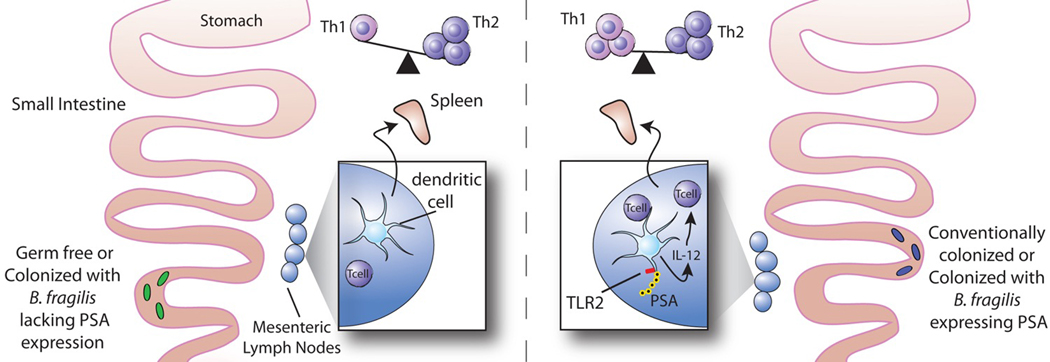Figure 1.
Impact of B. fragilis PSA on the development of the immune system. The immune system of GF mice is skewed towards Th2 immune responses. Colonizing GF mice with a PSA-producing strain of B. fragilis corrects this defect and restores a Th1/Th2 balance in the spleen. PSA produced by the intestinal bacteria is most likely sampled from the intestine by DCs, which then migrate to the MLNs. Within the APC, PSA is processed and presented to T cells. Recognition of PSA in the context of MHCII by the TCR triggers a CD4+ T cell immune response. PSA stimulates TLR2 signaling and IL-12 production by dendritic cells. The IL-12 produced by the APC binds to the IL-12 receptor on T cells and activates the Th1 transcription factor, Stat-4. In response to IL-12 and Stat-4, Th1 cells are generated that produce IFN-gamma. This process is dependent on PSA; colonization of GF mice with B. fragilis that lacks PSA production does not correct the Th1/Th2 imbalance found in the absence of bacterial colonization.

